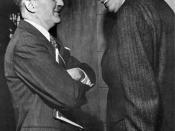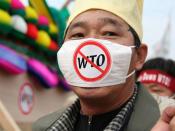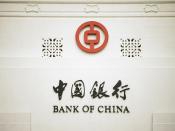The onset of the globalisation era has brought about the establishment of a number of key international organisations, and brought into greater light already existing institutions in the global economy. In particular, the World Trade Organisation, the International Monetary Fund, and the World Bank. These global institutions, as well as a small amount of others have varying goals and importance in the world economy, yet most play somewhat of a role in the advancement of society through their neo-liberal economical foundations, or so they claim. In globalisation's pursuit of a world without boundaries, trading blocs and agreements have been formed throughout the world. These blocs and agreements have basically sliced the world up into separate trading areas, yet some argue that they act as 'stepping stones' towards the euphoric of global free trade. The vary neo-liberal economic system through which these institutions and the idea of free trade operate is now on trial.
Economic theory has proved vastly different to the reality for many members of the world economy.
The World Trade Organisation is one of the most powerful global economic institutions. The role of the WTO is to implement and advance global trade agreements and to resolve trade disputes between countries, yet these roles and actions often have very different underlying effects particularly in developing nations who are at the mercy of the WTO and major powers, who have greater power and ability to negotiate in WTO agreements.
Established in 1995 during the final round of GATT negotiations between 1986 and 1993, known as the Uruguay Round, the WTO is the first international organisation with powers to enforce trade agreements across the world. Critisised by some as having too much power, the WTO has generally been effective in ensuring that countries comply with global trade rules, sometimes...


